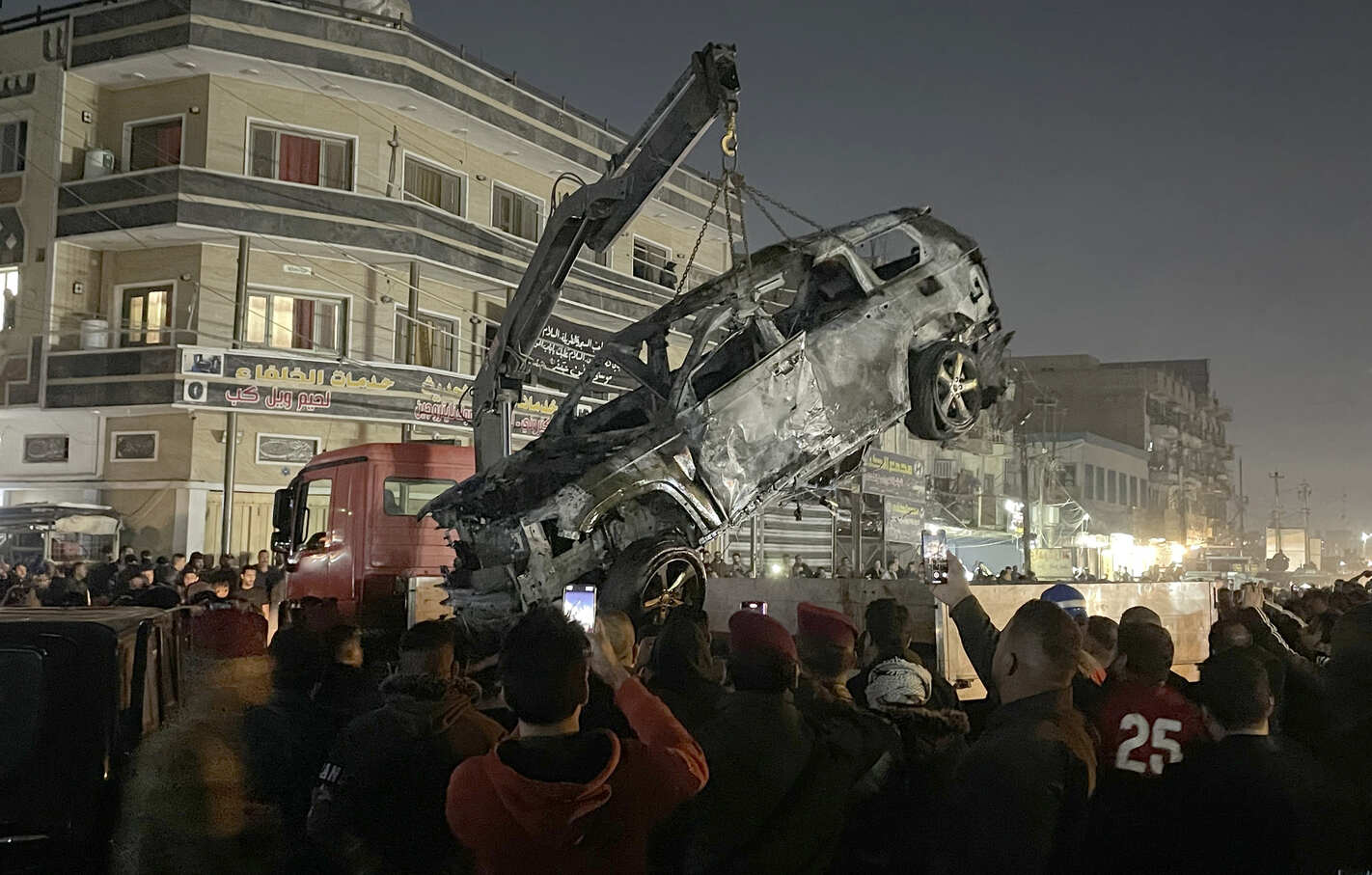US Strikes in Iraq and a Humanitarian Disaster in Sudan
On this news episode of American Prestige, headlines from around the globe.

Here's where to find podcasts from The Nation. Political talk without the boring parts, featuring the writers, activists and artists who shape the news, from a progressive perspective.
On this week's News episode of American Prestige: the U.S. hits targets in Iraq and Syria in retaliation for the American troops killed in Jordan (0:30); Israel refuses Hamas’ terms for a ceasefire as IDF troops enter Rafah (6:06); in the Philippines, a feud between Sebastian Duterte and President Ferdinand Marcos Jr. escalates (11:46); in Sudan, humanitarian assistance is cut off and telecom services are down as the catastrophe intensifies (15:04); President Macky Sall postpones elections in Senegal (17:47); Ukrainian president Zelensky fires top general Valerii Zaluzhnyi while a U.S. aid bill is stuck in Congress (22:23); in the Netherlands, coalition talks for the Geert Wilders-led government falter (26:38); the Colombian government extends its ceasefire with the ELN, while the latter swears off kidnapping (29:41); protests in Haiti demand the resignation of president Ariel Henry (31:22); Joe Biden's top Asia aide Kurt Campbell is confirmed as the new Deputy Secretary of State (33:21); and a new climate report says the opportunity for limiting warming to 1.5°C might be gone (34:26).
Note: Zelensky’s firing of Zaluzhnyi was officially announced after the time of recording
Advertising Inquiries: https://redcircle.com/brands
Privacy & Opt-Out: https://redcircle.com/privacy

A crane lifts the wrecked car which has been targeted to kill the Senior commander Abu Baqir al-Saadi of Popular Mobilization Forces (Al-Hashd al-Shaabi) at eastern area of Al-Mashtal in Baghdad, Iraq on February 07, 2024.
(Murtadha Al-Sudani / Anadolu via Getty Images)On this episode of American Prestige, the US hits targets in Iraq and Syria in retaliation for the American troops killed in Jordan (0:30); Israel refuses Hamas’s terms for a cease-fire as IDF troops enter Rafah (6:06); in the Philippines, a feud between Sebastian Duterte and President Ferdinand Marcos Jr. escalates (11:46); in Sudan, humanitarian assistance is cut off and telecom services are down as the catastrophe intensifies (15:04); President Macky Sall postpones elections in Senegal (17:47); Ukrainian president Zelensky fires top general Valerii Zaluzhnyi while a US aid bill is stuck in Congress (22:23); in the Netherlands, coalition talks for the Geert Wilders–led government falter (26:38); the Colombian government extends its ceasefire with the ELN, while the latter swears off kidnapping (29:41); protests in Haiti demand the resignation of president Ariel Henry (31:22); Joe Biden’s top Asia aide Kurt Campbell is confirmed as the new deputy secretary of state (33:21); and a new climate report says the opportunity for limiting warming to 1.5° C might be gone (34:26).
Zelensky’s firing of Zaluzhnyi was officially announced after the time of recording.

Here's where to find podcasts from The Nation. Political talk without the boring parts, featuring the writers, activists and artists who shape the news, from a progressive perspective.
Danny and Derek, the greatest news anchors since Lennon/McCartney. This week's American Prestige News Roundup: Kurdistan Workers’ Party (PKK) leader Abdullah Ocalan calls for the group’s disarmament (0:32); Syria hosts a “National Dialogue” conference to work through the country’s transition (6:34); Israel and Hamas salvage a hostage deal, but the end looms on Saturday (10:07); Yoon’s impeachment trial concludes in South Korea (20:46); in Sudan, increased fighting rages around Al-Fashir (23:27), the military makes gains in the country’s south (25:13), and the RSF and military set up dueling governments (26:43); Ukraine and the US potentially agree on a minerals deal (29:42); the results of the German election (34:41); Austria’s government attempts to form a coalition (38:17); Trump ends a sanctions waiver for Venezuela (40:35); the Trump admin muses kicking Canada out of the Five Eyes intelligence sharing network (42:29); the US announces tariffs on the EU, potentially Canada, and maybe even Mexico (44:20); Trump announces the “gold card” visa plan (46:45); and Trump’s attempts at a humanitarian aid blockade continue (48:45).
Advertising Inquiries: https://redcircle.com/brands
Privacy & Opt-Out: https://redcircle.com/privacy
Subscribe to The Nation to Support all of our podcasts
Support independent journalism that exposes oligarchs and profiteers
Donald Trump’s cruel and chaotic second term is just getting started. In his first month back in office, Trump and his lackey Elon Musk (or is it the other way around?) have proven that nothing is safe from sacrifice at the altar of unchecked power and riches.
Only robust independent journalism can cut through the noise and offer clear-eyed reporting and analysis based on principle and conscience. That’s what The Nation has done for 160 years and that’s what we’re doing now.
Our independent journalism doesn’t allow injustice to go unnoticed or unchallenged—nor will we abandon hope for a better world. Our writers, editors, and fact-checkers are working relentlessly to keep you informed and empowered when so much of the media fails to do so out of credulity, fear, or fealty.
The Nation has seen unprecedented times before. We draw strength and guidance from our history of principled progressive journalism in times of crisis, and we are committed to continuing this legacy today.
We’re aiming to raise $25,000 during our Spring Fundraising Campaign to ensure that we have the resources to expose the oligarchs and profiteers attempting to loot our republic. Stand for bold independent journalism and donate to support The Nation today.
Onward,
Katrina vanden Heuvel
Editorial Director and Publisher, The Nation
